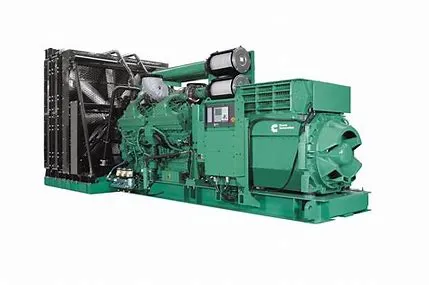How to Optimize Fuel Systems for Generator Set Efficiency

Have you ever wondered how to squeeze every last drop of performance from your generator set? The secret lies in optimizing your fuel system. By making a few strategic upgrades and adopting some best practices, you can significantly improve your generator's efficiency and save money on fuel costs. In this comprehensive guide, we'll explore the ins and outs of fuel system optimization for generator sets.
Understanding the Basics of Fuel Systems in Generator Sets
Before diving into optimization strategies, it's essential to understand the role of the fuel system in a generator set. The fuel system is responsible for supplying fuel to the engine, which converts the fuel's chemical energy into mechanical energy to produce electricity. There are three main types of fuel systems in generator sets: mechanical, electronic, and common rail.
Mechanical Fuel Systems
Mechanical fuel systems use a mechanical injection pump to deliver fuel to the engine. These systems are simple, reliable, and easy to maintain. However, they may not offer the same level of precision and efficiency as electronic or common rail systems.
Electronic Fuel Systems
Electronic fuel systems use an electronic control unit (ECU) to manage fuel injection. The ECU receives input from various sensors, such as the engine speed sensor and crankshaft position sensor, to determine the optimal fuel injection timing and quantity. Electronic fuel systems offer improved fuel efficiency, reduced emissions, and better performance compared to mechanical systems.
Common Rail Fuel Systems
Common rail fuel systems are the most advanced type of fuel system, offering the highest level of precision and efficiency. These systems use a high-pressure fuel pump to supply fuel to a common rail, which distributes the fuel to each injector. The ECU controls the injectors, delivering precise amounts of fuel at the optimal timing for maximum efficiency and performance.
Key Strategies for Optimizing Fuel Systems in Generator Sets
Now that we've covered the basics of fuel systems, let's explore some key strategies for optimizing their performance in generator sets.
1. Upgrade to a Modern Fuel System
If your generator set is equipped with an older mechanical fuel system, upgrading to an electronic or common rail system can significantly improve fuel efficiency, reduce emissions, and enhance performance. While the upfront cost of such an upgrade may be substantial, the long-term savings in fuel costs and maintenance can make it a wise investment.
2. Regular Maintenance and Inspections
Regular maintenance is crucial for ensuring the optimal performance of your generator set's fuel system. This includes changing the fuel filter at recommended intervals, cleaning or replacing the air filter, and inspecting the fuel lines for leaks or damage. By keeping your fuel system in top shape, you can prevent performance issues and extend the life of your generator set.
3. Use High-Quality Fuel
The quality of the fuel you use can have a significant impact on your generator set's efficiency and performance. Using high-quality, clean fuel can help prevent clogs, corrosion, and other issues that can negatively affect your fuel system. It's worth noting that using low-quality fuel can also void your generator set's warranty, so it's essential to choose the right fuel for your equipment.
4. Monitor and Adjust Fuel Pressure
Maintaining the correct fuel pressure is critical for optimal generator set performance. Too much or too little fuel pressure can result in poor fuel atomization, reduced efficiency, and increased emissions. Regularly monitoring and adjusting fuel pressure can help ensure your generator set is operating at peak efficiency.
5. Install a Fuel Treatment System
Fuel treatment systems can help remove water, sediment, and other contaminants from your fuel, preventing clogs and corrosion in your fuel system. By keeping your fuel clean and dry, you can improve your generator set's efficiency, performance, and reliability.
A Real-World Example: Optimizing a Data Center's Generator Sets
To illustrate the potential benefits of fuel system optimization, let's consider a real-world example. A data center with multiple generator sets was experiencing inconsistent performance and high fuel costs. By upgrading their mechanical fuel systems to electronic systems, implementing regular maintenance schedules, and using high-quality fuel, the data center was able to improve fuel efficiency by 15%, reduce emissions, and significantly extend the life of their generator sets.
Bringing It All Together: Optimizing Your Generator Set's Fuel System
In conclusion, optimizing your generator set's fuel system is a smart investment that can pay off in the form of improved efficiency, reduced fuel costs, and enhanced performance. By understanding the basics of fuel systems, adopting key optimization strategies, and learning from real-world examples, you can unlock the full potential of your generator set and enjoy the benefits of increased efficiency and reliability.
For more detailed information on optimizing fuel systems for generator set efficiency, visit our official website:




























































 winning power
winning power



